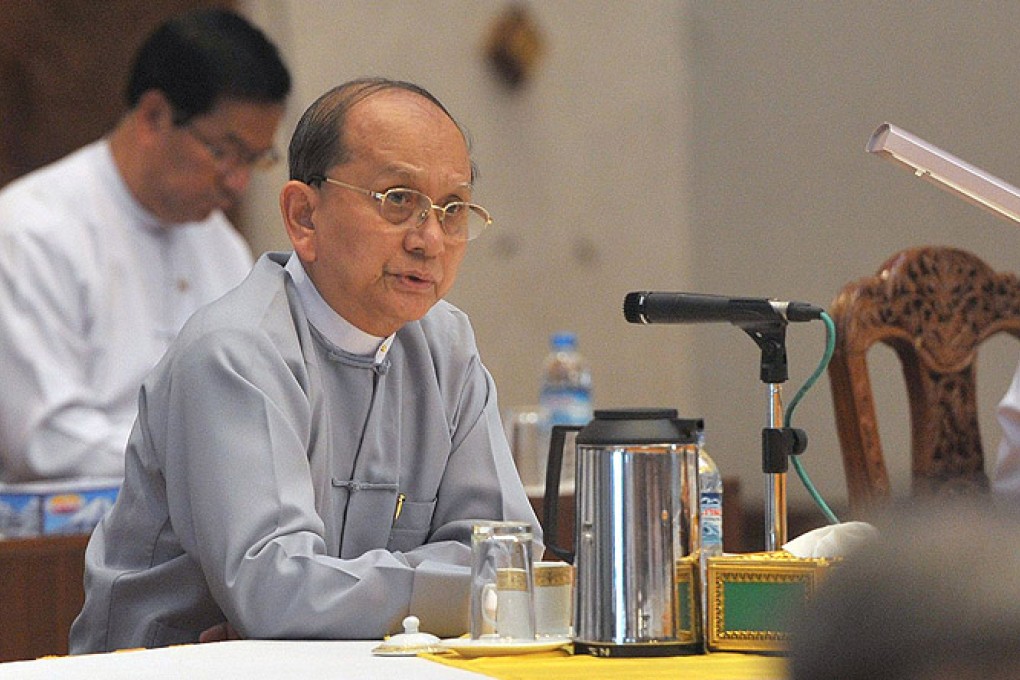Myanmar president signs off on controversial population law
Thein Sein inks law that could force some mothers to wait three years between children, in a move some believe discriminates against the Muslim Rohingya minority

Myanmar’s president has signed off on a law requiring some mothers to space their children three years apart despite objections by a visiting senior US diplomat and rights activists, who worry it could be used not only to repress women, but also religious and ethnic minorities.
The Population Control Health Care Bill – drafted under pressure from hard-line Buddhist monks with a staunchly anti-Muslim agenda – was passed by parliamentarians last month.
President Thein Sein gave it his stamp of approval on Tuesday, state-run media said on Saturday, a day after US Deputy Secretary of State Anthony Blinken warned during a face-to-face meeting of the potential dangers.
As predominantly Buddhist Myanmar started moving from dictatorship to democracy four years ago, new-found freedoms of expression lifted the lid on deep-seeded hatred for minority Muslims – including Rohingyas now arriving on Southeast Asian shores in crowded, rickety boats.
Many are fleeing persecution and violence that has left up to 280 people dead and forced another 140,000 from their homes in western Rakhine state. They are living under apartheid-like conditions in dusty, crowded camps, with little access to education or adequate medical care. They also have little freedom of movement, having to pay hefty bribes if they want to pass police barricades, even for emergencies.
The population law – which carries no punitive measures – gives regional authorities the power to implement birth-spacing guidelines in areas with high rates of population growth.

